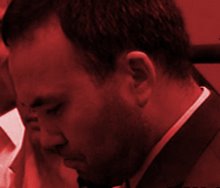Celil's family, friends appeal to PM

OTTAWA (CP) - The federal government says it is using "all possible diplomatic avenues," including appeals to other countries, to press for the release of Canadian Islamic religious leader Huseyin Celil from jail in Uzbekistan.
Celil, a political dissident who fled his homeland in the mid-1990s before coming to Canada as a refugee and getting citizenship, faces deportation to China and possible execution.
"It is outrageous that the Uzbeki authorities have detained Mr. Celil without any clear explanation as to why or what their interest is in him," the prime minister's parliamentary secretary, Jason Kenney, said Wednesday.
"It is totally unacceptable to the government that it took some three weeks after his initial detention for Uzbeki authorities to permit access by Canadian consular officials.
"We publicly call upon the Uzbekistani government to co-operate fully with Canadian consular officials, which is their international legal obligation."
The statement came after Celil's pregnant wife, Kamila Telendibaeva, held an emotional news conference along with Amnesty International at Parliament Hill on Wednesday, where she read a statement pleading for help.
"We came to Canada (because) we wanted peace and a home to raise our family," she said, stopping repeatedly to fight back tears. "In Canada, we thought that we could speak freely and express our fears.
"Now my husband is facing extradition to the very country he fled from. I ask you, please, don't let them return him to China. . . . I don't want my unborn child or my two boys to ask who their father was or why he can't come home."
The human rights group and 12 other non-governmental organizations have written Prime Minister Stephen Harper asking him to intervene personally to help Celil, who has championed the cause of the Uygur people, an ethnic Muslim minority in China's Xinjiang province.
Kenney said Ottawa is "preoccupied" with Celil's release and has dedicated a full-time consular official out of Moscow to press the case in Uzbekistan "with full vigour."
"We are looking at and using all possible diplomatic avenues to press for his release," Kenney said.
"We have been and will be engaging other countries to assist us in this matter because, quite frankly, Canada has a very modest official presence in the central Asian region. We don't have an embassy or even a consulate in Uzbekistan or in neighbouring countries."
The issue is close to Kenney's heart. He made a controversial departure from a Canadian trade mission in China last year to visit the family of a dissident. He said Wednesday that weaker people suffer continuing, systematic persecution in China, "which is precisely why Canada granted convention refugee status to Mr. Celil in the first place."
Supporters want Canada to ensure legal counsel for Celil.
Celil was arrested in Uzbekistan on March 27 when he tried to renew his visa while the couple and their children were visiting Telendibaeva's family. No charges have been laid.
Telendibaeva returned to Canada last weekend after she was repeatedly denied visits to see her husband in jail. He was apparently arrested on a warrant from China and a ruling ordering his execution.
Amnesty International fears Celil, who escaped prison in China once, will be sent back because of close ties between the two countries and mutual extradition treaties.







